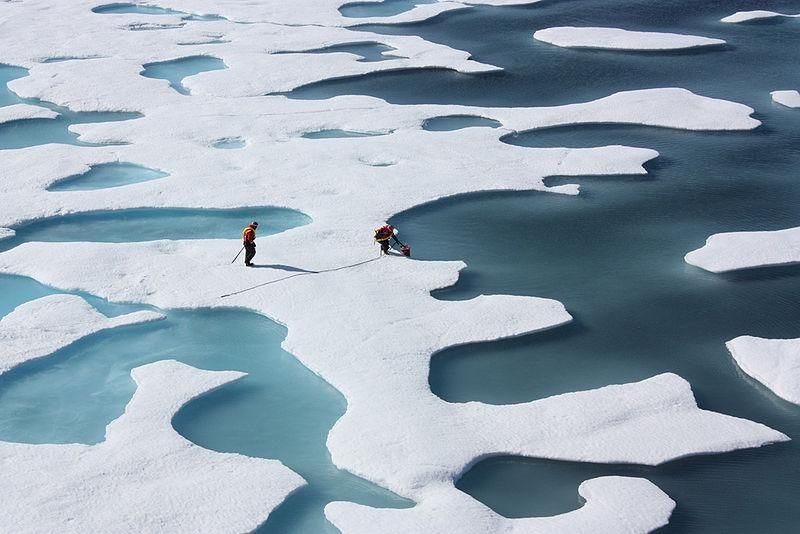Arctic Council pledges climate action despite Russia dispute
The eight Arctic Council nations have pledged to scale up action on climate change to address the regions shrinking ice caps

The eight Arctic Council nations have pledged to scale up action on climate change to address the regions shrinking ice caps, according to an announcement on Friday.
The countries will try to put aside disputes over issues like Russia's intervention in Ukraine.
The Council, which includes Canada, Denmark, Finland, Iceland, Norway, Russia, Sweden and the United States, met in the Canadian town of Iqaluit, 300 km (200 miles) south of the Arctic Circle, and said it would focus on reducing black carbon and methane emissions.
In 2014, the Arctic’s sea ice was the smallest in winter since satellite records began in 1979, according to U.S. data, with black carbon and methane viewed as particularly harmful.
The region is warming at twice the rate of other parts of the world, which threatens local communities as it opens up new sea lanes and uncovers large oil resources.
At last weeks meeting, the Council sought to play down divisions between members, including over Russia's March 2014 annexation of Crimea from Ukraine.
Russia also caused concern in March when it undertook military exercises across its territory including in the Arctic, involving around 45,000 troops as well as aircraft and submarines.
The host of the meeting, Canada’s environment minister Leona Aglukkaq, did not mention Ukraine during the day's talks but told the closing press conference that she raised it in a private with the Russian minister of natural resources, Sergei Donskoi.
The clearest result of the Council meeting was the new nonbinding pledge to do more to cut black carbon and methane emissions.
Black carbon is emitted by diesel engines and wood-fired cooking stoves and settles on snow and ice, making it retain more warmth and melt at a faster rate.
The United States will chair the council for the next two years, and U.S. Secretary of State John Kerry said he hoped the council will adopt "an ambitious collective goal on black carbon" by the group's next meeting in 2017.


